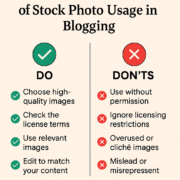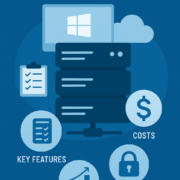How Can Technology Enhance Marketing ROI for Your Business?
Marketing technology offers businesses powerful tools to improve ROI. Tools like cold email marketing, data analytics, and CRM systems help streamline processes, target the right audience, and boost engagement.
By using these technologies, companies can make smarter decisions, automate tasks, and create personalized marketing strategies that drive results.
In this blog, we’ll show you how to use these tools effectively to maximize your marketing efforts and improve your return on investment.
Advanced Lead Management: Using Cold Email Marketing for Superior ROI
One of the most effective ways to enhance marketing ROI is by refining lead management with cold email marketing. With technology, businesses can directly reach potential customers through personalized messages, increasing the chances of meaningful engagement and conversions. For example, using email verification tools helps maintain a clean and accurate email list, reducing bounce rates and ensuring that marketing messages reach the intended audience.
Precision Targeting through Data Analytics
Data analytics has improved lead targeting by helping businesses identify high-potential leads. By segmenting audiences based on customer data, companies can customize cold email campaigns, resulting in a 760% increase in marketing ROI. This targeted approach boosts engagement and conversion rates, directly improving ROI.
Automation Tools for Streamlined Outreach
Efficient outreach tools are essential for generating leads and reaching new clients. These tools simplify the process of connecting with potential customers, automating follow-ups, and providing useful data to improve future campaigns. By automating personalized communication, outreach platforms can boost engagement and improve conversion rates.
Outreach tools are essential for effective lead generation and client engagement. The sparkle tool helps businesses to maximize cold email marketing efforts. It ensures high email deliverability, automates follow-up sequences, and provides detailed campaign analytics. Real-time analytics and personalization options allow businesses to adjust their outreach based on performance, making it easier to connect with the right audience and improve conversion rates.
Personalization Techniques to Boost Engagement
Personalization is essential in today’s market. Customized content, crafted to reflect the recipient’s behavior and preferences, can increase open rates and click-through rates.
Using technology, companies can tailor their messaging dynamically. As emphasized by Jake Smolarek, London’s Premier Life Coach, using technology to tailor messaging dynamically is key. Techniques such as adding the recipient’s name, referencing past interactions, and addressing specific needs allow brands to create a connection that builds trust and fosters engagement, driving higher conversion rates and better overall performance.
Performance Metrics and Continuous Optimization
Tracking performance metrics is crucial in optimizing cold email marketing. Monitoring key indicators like open rates, click-through rates, and conversions provides insight into what’s working and where improvements are needed.
Regular A/B testing and adjustments can improve conversion rates, making campaigns more effective over time.
Using AI for Better Customer Insights
Artificial intelligence (AI) is transforming how businesses understand and engage with customers. By using AI, companies gain deeper insights, allowing for more personalized and effective marketing strategies.
Predictive Analytics for Customer Behavior
- Uses historical data to forecast customer needs and preferences.
- Helps businesses anticipate trends and craft targeted strategies.
- Companies using predictive analytics can improve ROI.
- Enables proactive engagement, enhancing relevance, and optimizing interactions.
Marketing Automation: Streamlining Campaigns
Marketing automation platforms enable companies to manage campaigns across multiple channels, ensuring that each message aligns with the brand’s values and reaches the right audience at the right time.
Integration of Multi-Channel Campaigns
- Multi-channel campaigns boost ROI
- Coordinating across email, social media, and more increases brand visibility
- Platforms streamline campaign design, scheduling, and monitoring
- A unified brand presence strengthens credibility and audience relationships
Workflow Automation for Efficiency
Beyond multi-channel capabilities, automation helps streamline routine tasks like email scheduling and social media posts. Automating these repetitive tasks can save up to 10 hours per week, enabling marketing teams to concentrate on strategic development and creative initiatives.
Data-Driven Decision Making: Utilizing Analytics for Strategic Planning
Data-driven decision-making allows businesses to make informed adjustments to their campaigns in real-time, optimizing results and ensuring that resources are invested effectively.
Real-Time Analytics for Immediate Insights
Real-time analytics provide marketers with up-to-date insights, allowing them to make swift adjustments based on current performance. Businesses that incorporate real-time data can see an increase in revenue, as they can respond to trends and needs immediately, keeping campaigns relevant and impactful.
Customer Segmentation for Targeted Marketing
Effective customer segmentation enables tailored marketing that speaks to distinct groups within a larger audience. With segmentation, businesses can customize messaging to align with specific demographics, interests, or behaviors, boosting engagement and maximizing ROI potential.
Improving Customer Experience through Personalization
Personalization is critical for creating lasting customer relationships and increasing engagement. Implementing cold email tips, such as personalizing messages and crafting attention-grabbing subject lines, combined with verified contact lists, can lead to higher open and response rates, ultimately maximizing the impact of your marketing spend.
By delivering relevant content, businesses foster a sense of connection and trust, ultimately leading to improved loyalty and a higher ROI.
Dynamic Content Delivery
Personalized content recommendations based on user behavior create a cohesive experience that increases satisfaction. Delivering dynamic content tailored to individual preferences keeps customers engaged and encourages them to explore more, enhancing the overall value they receive from your brand.
Personalized Email Campaigns
By addressing recipients by name, referencing past purchases, and offering tailored product suggestions, businesses can drive higher conversion rates. Customized promotions and product recommendations enhance the likelihood of conversions, fostering customer loyalty and promoting repeat business.
Social Media Management Tools
Social media management tools allow businesses to maintain a visible and engaging brand presence. By automating posts and actively monitoring interactions, companies can ensure they’re connecting with audiences consistently.
Scheduled Posting and Content Curation
- Ensures consistent online presence with regular updates
- Pre-scheduling and content curation tools maintain brand image
- Keeps audiences engaged with relevant content
Social Listening for Brand Monitoring
- Monitors social media for customer mentions, feedback, and trends
- Real-time engagement fosters positive relationships
- Enhances brand reputation by addressing feedback promptly
CRM Systems: Building Stronger Relationships
Customer relationship management (CRM) systems are essential in managing customer data and supporting personalized marketing strategies.
Centralized Customer Data Management
CRM systems allow businesses to store and manage all customer data in one place. This centralized approach provides a comprehensive view of each customer’s journey, making it easier to implement personalized strategies and targeted campaigns.
Enhanced Customer Retention Strategies
Analyzing customer data with CRM systems helps identify opportunities to retain customers. Loyalty programs and tailored outreach strategies based on CRM insights lead to higher customer satisfaction, resulting in increased lifetime value and long-term ROI.
Measuring ROI: Tools and Techniques
To gauge the success of marketing efforts, businesses must have reliable methods for measuring ROI. Using the right tools and tracking key metrics ensures that marketing resources are allocated effectively.
Attribution Models for Accurate ROI Calculation
Attribution models help businesses understand which channels contribute most to conversions. By determining where conversions are originating, companies can invest in high-performing channels and reduce spending on less effective strategies.
Key Performance Indicators (KPIs) to Monitor
Tracking KPIs aligned with business goals provides continuous insight into campaign effectiveness. Metrics like customer lifetime value (CLV) and return on ad spend (ROAS) allow companies to evaluate the success of each marketing effort, guiding future decisions.
Benefits of Technology in Marketing ROI
Conclusion
Using technology in marketing is key to driving growth and improving ROI. From cold email marketing to CRM systems and predictive analytics, each tool plays an essential role in creating more personalized, effective campaigns. By integrating these technologies, companies can enhance lead management, streamline operations, and engage audiences with precision, resulting in sustained growth and success.
Frequently Asked Questions (FAQs)
How can automation tools improve the efficiency of cold email marketing campaigns?
Automation tools streamline the process of sending emails, scheduling follow-ups, and tracking responses, allowing marketers to manage large-scale campaigns with minimal manual effort.
What role does artificial intelligence play in enhancing marketing ROI?
AI enables predictive analytics, personalized customer interactions, and efficient data processing, leading to more targeted marketing efforts and improved ROI.
How can businesses effectively measure the ROI of their marketing campaigns?
By utilizing attribution models and monitoring key performance indicators, businesses can accurately assess the impact of their marketing activities and make data-driven decisions to optimize ROI.




